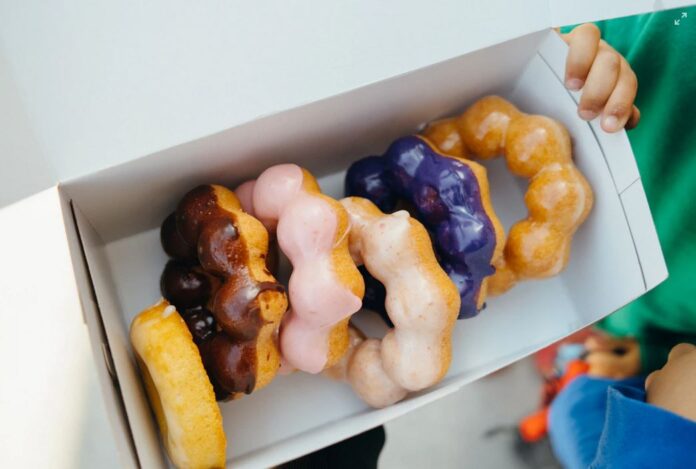Across the country, bakeries are taking on a new, fusion identity. Their sweet confections meld together the traditional flavors of Asian, American, and European ingredients.
One such shop is Third Culture Bakery, an establishment known for its signature Mochi Muffin with locations in California and Colorado. Chef Sam Butarbutar and Wenter Shyu started the bakery together, offering desserts reflective of their childhoods in Indonesia and Taiwan. The couple takes staples like donuts and brownies and infuse the treats with a tropical fruit or a warm spice twist.
Butarbutar said that his mom’s creations inspired the desserts he makes today. “She would make these steamed layer cakes out of rice flour. There’s coconut milk and coconut sugar, and it has such a satisfying chew—the sweetness and the little savory notes of the coconut milk and the coconut sugar. I wanted to share that with people.”
Combining flavors is no new phenomenon. In 2018, the San Francisco Chronicle interviewed Mikiko Yui, one of the pastry chefs at Stonemill Matcha in San Francisco. Yui had moved to California from Japan and spent time at the Progress as co-pastry chef with longtime mentor Nicole Krasinski.
Yui, whose black-sesame angel food cake and yuzu meringue tart with matcha crust have been a source of some awe, called her food for Stonemill Matcha more personal. “I always liked Western-style desserts when I was little,” she said. “Now I appreciate the simplicity of Japanese pastry. It was so natural for me to combine the two.”
As young Asian Americans seek to satisfy their diverse palettes, bakery chains are also participating in these trends. Places like the South Korean-based Paris Baguette with locations in 7 states and the Taiwan-based 85C Degree Bakery in the San Francisco Bay Area showcase a delicious array of fusion confections like passion fruit mochi donuts and a jumbo guava cheese strudel.
Older, traditional Asian bakeries started out as a means of replicating something immigrants missed back in their home country. The new bakeries’ bolder assertion of identity is a natural evolution, said Robert Ji-Song Ku, an Asian American studies professor at Binghamton University and author of “Dubious Gastronomy: The Cultural Politics of Eating Asian in the USA.”
The Third Culture Bakery owners believe that Asian Americans have much to offer. Food, especially, is a kind of love language that can be used to educate and empower.
“Food is different rather than literature or film [as representation] in that there’s no ideology,” Butarbutar said. “We get a lot of people who come to our bakery not knowing our story, not knowing that it’s a gay bakery. Having them come into our bakery, eating our food and reading our story changes people’s minds and hearts.”
AsAmNews has Asian America in its heart. We’re an all-volunteer effort of dedicated staff and interns. Check out our new Instagram account. Go to our Twitter feed and Facebook page for more content. Please consider interning, joining our staff, or submitting a story or making a contribution.


